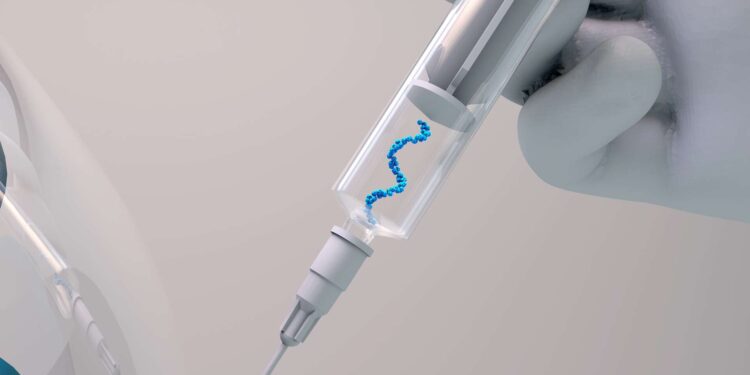The new British clinical trial of a treatment based on messenger RNA is testing the safety and effectiveness in the fight against several cancers. It will likely take time before patients can benefit.
This will also interest you
(ON VIDEO) Why RNA vaccines work better in men than women Most vaccines are more effective in women than in men. But…
For the first time, cancer patients have received immunotherapy treatment using messenger RNA (mRNA) to help their bodies recognize and fight cancer cells. With curative intent, the administration of the therapy called mRNA-4359 took place atImperial College Healthcare NHS Trust (London) as part of a phase 1/2 clinical trial. At this stage, the main objective of this new trial called Mobilize is to find out if this particular type of mRNA therapy is safe and tolerated by patients with breast cancers. lunglung or skin, and whether it can reduce the size of tumorstumors. Trial participants receive either mRNA alone or in addition to Pembrolizumab – a antibodyantibody used as medicine anticanceranticancer – and will be followed for a period of up to 34 months.
The new therapy uses genetic materialgenetic material (mRNA) and works by presenting to immune systemimmune system of common tumor markers. “ This should help train patients’ immune systems to recognize and fight cancer cells expressing these markers, but also potentially eliminate cells that could suppress the immune response. », Specifies a press release.
This mRNA treatment launched in London is part of therapeutic cancer immunotherapies, which are “off the shelf” and tailored to a particular type of cancer. Personalized cancer immunotherapies are based on the extraction of a patient’s genetic material from their tumor.
The foundations of a new therapy are laid
“ This research is still in its early stages and it may be many years before patients can benefit from it, but this trial lays the crucial foundation that brings us closer to new, potentially less toxic and more precise therapies », welcomed Dr David Pinato, clinical scientist and oncologistoncologist medical consultant at theImperial Collegeand investigator of the UK arm of the trial.



